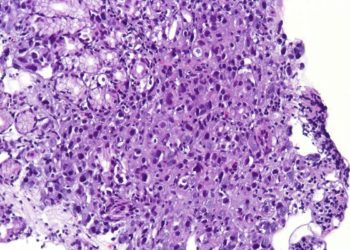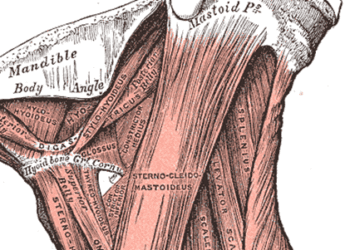Laparoscopic splenectomy yields better outcomes than open
Image: PD
1. Postoperative mortality and multiple morbidity factors including pulmonary, wound and infectious complications were reduced following laparoscopic splenectomy compared to an open procedure.
2. Open splenectomy patients were at higher risk of needing packed red blood cell transfusions during their operations, despite the fact that laparoscopic splenectomies tended to last longer. Transfusions had a dose-dependent relationship with complications. Each unit was associated with a higher risk of postoperative mortality and major morbidities.
Evidence Rating Level: 2 (Good)
Study Rundown: Although previously demonstrated in smaller studies, this paper provides evidence for superiority of the laparoscopic approach to splenectomy performed in a non-trauma setting. Although boasting a large patient cohort and solid research design, this study is limited by its retrospective nature. Specifically, a non-trivial number of possible confounding lab values did not have adequately recorded data. Most relevantly, only 44 patients had their preoperative hematocrit level recorded and a gender-appropriate average hematocrit level was used in its place for statistical analysis. As sicker patients generally underwent open splenectomy and are generally more likely to be anemic, it is possible that lower preoperative hematocrit levels contributed to higher need for transfusions and worse surgical outcomes.
Click to read the study in Annals of Surgery
Relevant Reading: ACS NSQIP Data Collection, Analysis and Reporting
In-Depth [retrospective observational cohort study]: Authors reviewed 1781 non-trauma related splenectomy operations recorded in the ACS NSQIP database from 2008 to 2009. Approximately equal numbers of open and laparoscopic surgeries were included from over two hundred centers across the US, Canada and a few nations in the Middle East. The outcomes consisted of 30-day postoperative mortality and significant morbidities including: cardiac, respiratory, CNS, renal, wound, septic, thrombic and major bleeding complications. Using multiple multivariate logistic models, authors adjusted for possible clinically relevant confounders including indication for surgery in order to specifically evaluate differences in open versus laparoscopic technique. Compared to open splenectomy, patients who underwent laparoscopy had a significantly smaller risk of 30-day mortality (OR = 0.39), respiratory complications (OR = 0.45), wound events (OR = 0.33) and sepsis (OR = 0.5) and additionally experienced a shorter length of stay. Open operations were shorter in duration, but required more intraoperative blood transfusions.
By Asya Ofshteyn and Allen Ho
More from this author: Cardiorespiratory fitness predicts post-surgical mortality in elderly, High rates of readmission and recurrence from elective incisional hernia repairs, No long-term follow-up for benign thyroid nodules, Patient satisfaction a poor surgical quality indicator, Liver transplant prolongs life in metastatic colorectal cancer, Pediatric post-operative intussusception more common in open surgery, CTA as an alternative to angiography for blunt cerebrovascular trauma detection
© 2013 2minutemedicine.com. All rights reserved. No works may be reproduced without written consent from 2minutemedicine.com. Disclaimer: We present factual information directly from peer reviewed medical journals. No post should be construed as medical advice and is not intended as such by the authors or by 2minutemedicine.com. PLEASE SEE A HEALTHCARE PROVIDER IN YOUR AREA IF YOU SEEK MEDICAL ADVICE OF ANY SORT. Content is produced in accordance with fair use copyrights solely and strictly for the purpose of teaching, news and criticism. No benefit, monetary or otherwise, is realized by any participants or the owner of this domain.








